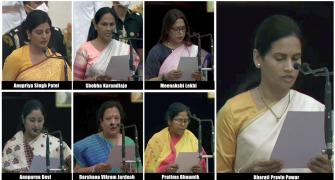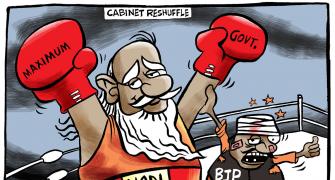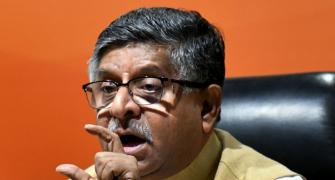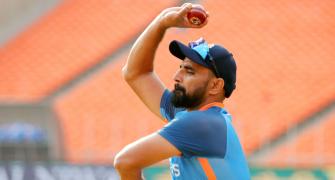Prime Minister Narendra Modi has boosted the representation of backward castes, dalits, tribals and women in his Council of Ministers in a big shake-up of his government with a focus on politically crucial states, including the all-important Uttar Pradesh.
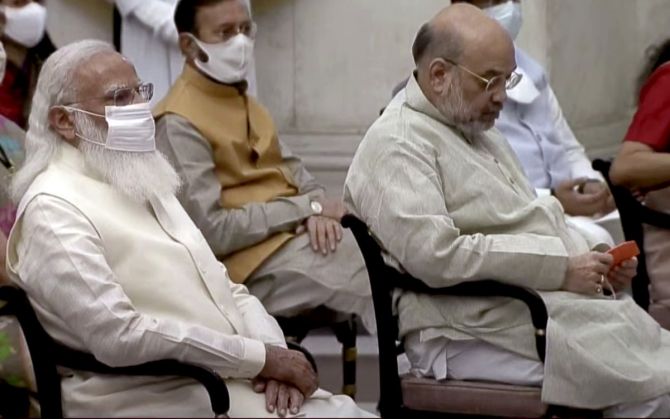
Through the exercise on Wednesday, he has also sought to boost governance quotient by bringing in a mix of young and experienced faces and dropping 12 ministers.
A generational shift was also visible in the revamped ministry with many veterans like Harsh Vardhan, who had drawn flak for his handling of the COVID-19 pandemic as health minister, Prakash Javadekar, D V Sadananda Gowda and Ravi Shankar Prasad making way for new faces in the Cabinet.
Defence Minister Rajnath Singh is now the only minister in the current government who had also served in the Vajpayee government during 1998-2004.
The expansion is also a nod to the Bharatiya Janata Party’s increasing geographical expanse as more states and regions have found representation in the Modi government while big states like West Bengal, Maharashtra, Gujarat and Karnataka have seen their presence boosted significantly.
Among the 36 fresh faces in his Council of Ministers, most have been accommodated as ministers of state while the prime minister has filled the Cabinet with people with ministerial experience, including two former chief ministers and former IAS officers each, at either the state or central level.
Seven ministers of state have also been elevated to the Cabinet rank.
Bhupender Yadav is the lone Cabinet minister without any administrative experience but the seasoned BJP leader and parliamentarian is seen as a solid hand at desk.
With an eye on constant social engineering, which has brought a large section of backward castes and dalits under the BJP's influence, since he led the BJP to power at the Centre in 2014, the prime minister has given seven new faces from Uttar Pradesh ministerial responsibilities with six of them coming from castes coming under the reserved category.
Assembly polls in Uttar Pradesh are due in early 2022.
The BJP has given representation to various small states like Tripura and Manipur, where the party is in power, and also boosted the presence of its allies by giving one berth each to the JD(U) and the Lok Janshakti Party faction headed by Pashupati Kumar Paras, both from Bihar.
Seven new woman ministers have also joined the government while one was dropped, significantly enhancing their presence in the Council of Ministers.
Modi has often highlighted that the support of women voters have often played a key role in the BJP's wins in states and at the national level.
Fifteen Cabinet ministers and 28 Ministers of State, comprising new faces and those elevated, were sworn in at a ceremony held in the Darbar Hall of the Rashtrapati Bhavan. While most of the members took oath in Hindi, a few of them took it in English.
This is the first reshuffle in the Council of Ministers by Prime Minister Modi since he assumed charge for a second term in May 2019.

